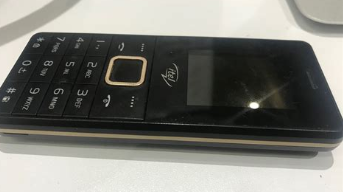Feature phones rule market despite smartphone craze
By Steve Umidha, March 9, 2023Feature phones are still the preferred mobile devices among Kenyans, cementing their dominance in the local handset market despite the popularity of smartphones.
Communications Authority of Kenya (CA) latest statistics shows that a staggering 33.6 million feature phones were actively in use between October and December last year, representing 68.1 per cent subscriptions of such gadgets.
In comparison, only 29,742,690 smartphones, or 60.2 per cent of the total cellular phones in the country, were in the hands of Kenyans during the quarter in review during which period a total of 63,360,751 mobile phones were in use.
A feature phone is a mobile phone that can complete basic functions, but does not have all of the capabilities of a smartphone.
The thriving feature phone market is attributed to the long battery life, which comes in handy for personal and work calls and is helpful when traveling to remote areas with frail network connections.
They are also being taunted as secure alternatives for those keen of not getting tapped by bugs that work with smart phones.
CA noted an upsurge in feature phone subscriptions which was also witnessed between April and June 2022, which stood at 32.9 million, representing 55.1 per cent market share, compared to smartphone subscriptions which stood at 26.8 million during that quarter, up from 26 million in September a year earlier. The fact that many users are still not ready to make the switch from feature phones to smartphones is also causing a slowdown in the smartphone market.
Acceptance of feature phones is widespread in certain user segments, especially those in rural areas where smartphone use is still low due to affordability concerns or illiteracy. Users of android smartphones mostly use their devices to browse the web, chat, and view images and videos on social media platforms like WhatsApp and YouTube.
Purchase terms
It comes amid the relentless push by telecoms, particularly Safaricom and Telkom Kenya to increase smartphone usage on their network through friendlier purchase terms like “Bonga points” as well as instalment payments for 4G-enabled handsets.
In July 2020, for instance, the country’s biggest telecoms operator Safaricom both in customers, mobile money market share, and calls launched a programme in partnership with Google that allowed its users to pay for 4G-enabled phones in installments, as it sought to increase smartphone usage on its network. Telkom Kenya in June 2022 unveiled a product financing program that will see customers acquire smartphones via hire purchase. It followed a partnership between the telco – the country’s third largest operator, and the Buy-Now-Pay-Later company Lipa Later.
SIM subscriptions increase after data clean-up drive. Meanwhile, the number of active SIM subscriptions rose significantly during the review quarter following a previous decline which had been occasioned by CA’s demand for data cleanup by mobile operators last year. The exercise was intended to decrease cases of digital fraud and cybercrime that have been lush in the local telecommunications sector for eons.
Surprisingly, a slightly reduced number of cyber threats were detected in the quarter under review with CA estimating that 249 million threats particularly malware and distributed denial-of-service attacks were identified by Kenyan businesses, compared to more than 278 million in the previous quarter.
More Articles

